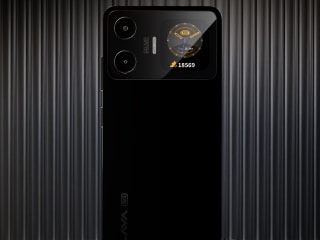- Home
- Transportation
- Transportation News
- Intel's Self Driving Car Unit Mobileye Plans to Step Up Use of Its Own Radar Tech by 2025
Intel's Self-Driving Car Unit Mobileye Plans to Step Up Use of Its Own Radar Tech by 2025
Mobileye uses a camera-based system that helps cars with adaptive cruise control and lane-change assistance.

Chief Executive Amnon Shashua said that Mobileye's robotaxis will use multiple Luminar units
The head of Intel's self-driving car subsidiary said on Tuesday the company wants to shift toward using its own radar-based technology and use a single LiDAR sensor per vehicle by 2025 in a bid to lower the cost of autonomous driving.
Mobileye has taken a different strategy from many of its self-driving car competitors, with a current camera-based system that helps cars with adaptive cruise control and lane change assistance. Those systems are on the road today and are gathering data to help Mobileye map the roads in new cities.
For more advanced systems, the company plans to add both radar sensors, which use radio waves to detect distance from objects, and LiDAR, a laser-based system that helps self-driving vehicles gain a three-dimensional view of the road. For a planned fleet of so-called robotaxis, which are commercial vehicles meant to ferry around passengers, the company is tapping sensors from Luminar Technologies.
In a presentation a the Consumer Electronics Show, Chief Executive Amnon Shashua said on Tuesday that Mobileye's robotaxis will use multiple Luminar units to gain 360-degree LiDAR, radar and camera coverage all around the vehicle. The robotaxis rolling out in at least eight cities starting in 2022 will each have four Luminar units, Shashua said in a subsequent question and answer session.
But Mobileye is also developing its own LiDAR sensor that it plans to start using in 2025 for cars aimed at consumers.
That 2025 consumer system will feature a single LiDAR unit facing the front of the vehicle, while cameras and a new radar-based system that Mobileye is also developing will cover the entire vehicle. Shashua said Mobileye is developing new ways to process radar data with software that will make radar more powerful. Radar sensors are cheaper than LiDAR but give a less detailed image.
"The difference between radars and LiDARs in terms of cost is an order of magnitude," he said. "No matter what people tell you about how to reduce the cost of LiDAR, radar is ten times lower. We are building LiDARs, so I know exactly the cost of the LiDARs."
In a statement, Mobileye said it plans to continue to use Luminar LiDARs "as much as possible" after introducing its own LiDAR sensors. Mobileye plans to offer its self-driving technology to automakers as separate components, meaning that automakers could choose a Mobileye system but use Luminar sensors for the LiDAR units.
Luminar declined to comment.
© Thomson Reuters 2020
What will be the most exciting tech launch of 2021? We discussed this on Orbital, our weekly technology podcast, which you can subscribe to via Apple Podcasts, Google Podcasts, or RSS, download the episode, or just hit the play button below.
Catch the latest from the Consumer Electronics Show on Gadgets 360, at our CES 2026 hub.
Related Stories
- Samsung Galaxy Unpacked 2025
- ChatGPT
- Redmi Note 14 Pro+
- iPhone 16
- Apple Vision Pro
- Oneplus 12
- OnePlus Nord CE 3 Lite 5G
- iPhone 13
- Xiaomi 14 Pro
- Oppo Find N3
- Tecno Spark Go (2023)
- Realme V30
- Best Phones Under 25000
- Samsung Galaxy S24 Series
- Cryptocurrency
- iQoo 12
- Samsung Galaxy S24 Ultra
- Giottus
- Samsung Galaxy Z Flip 5
- Apple 'Scary Fast'
- Housefull 5
- GoPro Hero 12 Black Review
- Invincible Season 2
- JioGlass
- HD Ready TV
- Laptop Under 50000
- Smartwatch Under 10000
- Latest Mobile Phones
- Compare Phones
- Tecno Spark Go 3
- iQOO Z11 Turbo
- OPPO A6c
- Samsung Galaxy A07 5G
- Vivo Y500i
- OnePlus Turbo 6V
- OnePlus Turbo 6
- Itel Zeno 20 Max
- Lenovo Yoga Slim 7x (2025)
- Lenovo Yoga Slim 7a
- Lenovo Idea Tab Plus
- Realme Pad 3
- Garmin Quatix 8 Pro
- NoiseFit Pro 6R
- Haier H5E Series
- Acerpure Nitro Z Series 100-inch QLED TV
- Asus ROG Ally
- Nintendo Switch Lite
- Haier 1.6 Ton 5 Star Inverter Split AC (HSU19G-MZAID5BN-INV)
- Haier 1.6 Ton 5 Star Inverter Split AC (HSU19G-MZAIM5BN-INV)

















